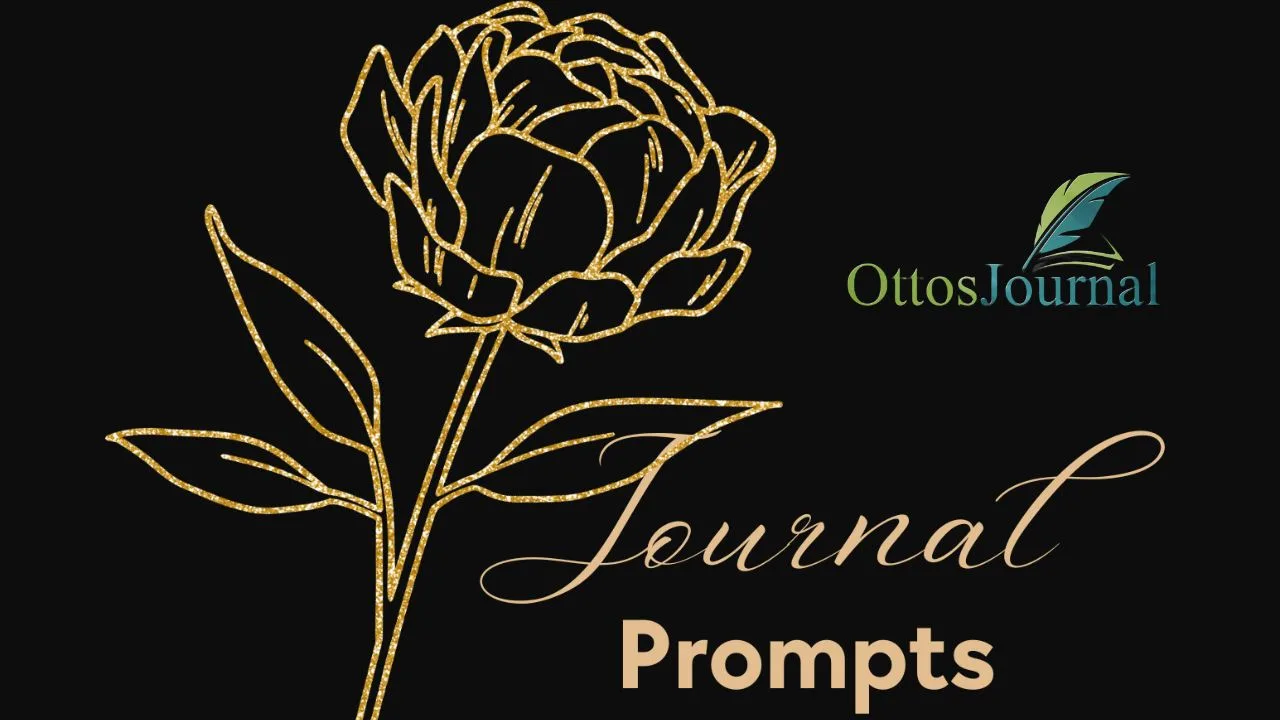Monthly journaling prompts are a helpful tool for those looking to establish a journaling habit or to incorporate self-care into their routine. Journaling has been shown to have numerous mental health benefits, including reducing stress and anxiety, improving mood, and increasing self-awareness.
Whether you are new to journaling or a seasoned pro, monthly journaling prompts can be a great way to jumpstart your writing and explore new topics. These prompts can be found online or in books, and cover a wide range of topics, from personal growth to creative writing. By committing to a monthly journaling practice, individuals can establish a habit of self-reflection and self-care, which can have lasting benefits for their mental health and well-being. Monthly journaling prompts offer a simple and effective way to incorporate journaling into your routine and explore a variety of topics related to personal growth and self-care.
Getting Started with Journaling
Journaling is an excellent way to reflect on your thoughts, emotions, and experiences. It can help you gain clarity, reduce stress, and improve your mental health. If you’re new to journaling, here are some tips to help you get started.
Choosing Your Tools
The first thing you need to do is choose your tools. You’ll need a pen and a notebook or journal. You can use any type of notebook or journal that you like, but it’s best to choose one that you enjoy writing in. Consider the size, paper quality, and design of the notebook. Some people prefer lined paper, while others prefer blank pages. You can also use a bullet journal if you prefer a more structured approach to journaling.
Establishing a Journaling Habit
To get the most benefit from journaling, it’s important to establish a regular habit. Set aside a specific time each day or week to write in your journal. Consistency is key, so try to stick to your schedule as much as possible. If you’re having trouble getting started, try using journal prompts or writing prompts to help you get your thoughts flowing.
Getting started with journaling is easy. All you need is a pen, notebook, and a commitment to consistency. Choose tools that you enjoy using and establish a regular habit of journaling. Using journal prompts or writing prompts can also help you get started and stay motivated.
75 Monthly Journaling Prompts
- Reflect on the most impactful event that happened this month.
- What are three goals you want to achieve next month?
- Write about a person who has positively influenced your life this month.
- List five things you are grateful for this month.
- What was the biggest challenge you faced this month, and how did you overcome it?
- Describe a moment this month when you felt proud of yourself.
- What is one habit you would like to start or stop next month?
- Write about a book or article that made an impression on you this month.
- What was the most enjoyable part of your month?
- How have you grown or changed this month?
- Describe a new place you visited or a new experience you had this month.
- What is something you learned about yourself this month?
- Write about a mistake you made this month and the lessons learned.
- How did you make time for self-care this month?
- What are your financial goals for next month?
- Write about a relationship that improved this month and why.
- What was the funniest thing that happened to you this month?
- Describe a moment this month when you felt at peace.
- What are you looking forward to most next month?
- Write about a goal you accomplished this month.
- What was the most delicious meal you had this month?
- Describe how the weather this month affected your mood and activities.
- What is one skill you want to improve or learn next month?
- Write a letter to your future self one year from now.
- How did you push out of your comfort zone this month?
- What are your top priorities for next month?
- Reflect on the best advice you received this month.
- What song or artist did you enjoy most this month?
- How did you contribute to your community or support others this month?
- What is a fear you would like to confront next month?
- Describe a meaningful conversation you had this month.
- What is something you wish you had done differently this month?
- Write about an act of kindness you witnessed or performed this month.
- What have you done this month to improve your physical health?
- Reflect on your work or school achievements this month.
- How have you used your creativity this month?
- What is one thing you can do next month to simplify your life?
- Write about a dream you had this month and what you think it means.
- What has been your biggest time-waster this month?
- How did you manage stress this month?
- What is a tradition you would like to start next month?
- Write about a news event that impacted you this month.
- What is something you’re struggling with, and how can you improve it next month?
- Describe a day this month you would like to remember.
- What are your thoughts on the current season and how it affects you?
- Write about a goal that seems out of reach and how you can work towards it next month.
- Reflect on what happiness means to you this month.
- What are some positive changes you’ve noticed in yourself this month?
- Write about someone you miss and why.
- How have your priorities shifted this month?
- What is a new routine or ritual you started this month?
- How are you planning to rest and recharge next month?
- What are your hopes for the next month?
- Write about something you are procrastinating on and why.
- Describe the best moment of this month.
- How have you balanced work and life this month?
- What is one thing you want to stop worrying about next month?
- Write about how you have used your time this month.
- What are you most passionate about right now?
- How do you feel about your personal growth this month?
- What is a project you want to start or complete next month?
- How can you improve your relationships next month?
- What is a quote or saying that resonated with you this month?
- What are the little things that brought you joy this month?
- Reflect on the changes you want to see in your life next month.
- Write about a challenge you’re facing and possible solutions.
- What is a lesson this month has taught you?
- How can you be more mindful or present next month?
- What are your aspirations for the next month?
- Describe something you’re looking forward to doing next month.
- How do you plan to stay organized and productive next month?
- What have you done this month to be environmentally conscious?
- Write about a habit you’ve successfully changed this month.
- How do you plan to give back or volunteer next month?
Monthly Themes and Prompts
Journaling is a great way to reflect on your thoughts and emotions, and monthly prompts can help guide your writing. Here are some themes and prompts to consider throughout the year.
January Writing Prompts
The start of the year is a great time to reflect on the past year and set intentions for the new year. Some January writing prompts could include:
- Reflect on your accomplishments from the past year.
- Write about your goals for the new year.
- Describe a new habit you want to start or an old habit you want to break.
- Write about what you’re most looking forward to in the new year.
April Journal Prompts
Spring is a time of renewal and growth, making it a great time to focus on personal growth and self-reflection. Some April journal prompts could include:
- Write about a new skill or hobby you want to learn.
- Reflect on a challenge you’ve overcome and how you grew from it.
- Write about a time when you felt most alive and why.
- Describe a place you’ve always wanted to visit and why.
Summer Journaling Ideas
Summer is a time for fun and relaxation, but it can also be a time for self-discovery and growth. Some summer journaling ideas could include:
- Write about a favorite childhood memory.
- Describe a place that brings you peace and why.
- Write about a book or movie that has impacted you and why.
- Reflect on a goal you’ve accomplished and how you did it.
End-of-Year Reflections
As the year comes to a close, it’s a great time to reflect on the past year and set intentions for the new year. Some end-of-year reflection prompts could include:
- Reflect on your biggest accomplishments from the past year.
- Write about a challenge you faced and how you overcame it.
- Describe a new habit you want to start in the new year.
- Write about what you’re most grateful for from the past year.
Personal Growth and Self-Discovery
Journaling is an excellent way to promote personal growth and self-discovery. By exploring emotions and feelings, setting and reviewing goals, and reflecting on values and milestones, individuals can gain a deeper understanding of themselves and their personal journey.
Exploring Emotions and Feelings
Journaling prompts that focus on exploring emotions and feelings can help individuals understand and process their emotions. By acknowledging and understanding their emotions, individuals can learn to manage them in a healthy way. Some prompts that can be used to explore emotions and feelings include:
- What are some emotions that you struggle with?
- How do you typically react to these emotions?
- What triggers these emotions?
- What are some healthy ways to manage these emotions?
Setting and Reviewing Goals
Journaling prompts that focus on setting and reviewing goals can help individuals stay motivated and focused on their personal growth. By setting achievable goals and reflecting on their progress, individuals can gain a sense of accomplishment and direction. Some prompts that can be used to set and review goals include:
- What are your short-term and long-term goals?
- How will you achieve these goals?
- What obstacles might you face, and how will you overcome them?
- What progress have you made towards your goals, and what can you do to stay motivated?
Journaling is an effective tool for promoting personal growth and self-discovery. By exploring emotions and feelings and setting and reviewing goals, individuals can gain a deeper understanding of themselves and their personal journey.
Overcoming Challenges Through Journaling
Journaling is an excellent way to overcome challenges. It allows individuals to express their negative emotions and thoughts in a safe space, which can help them deal with their fears, worries, regrets, and disappointments.
Dealing with Negative Emotions
Journaling can help individuals deal with negative emotions such as depression and anxiety. By writing down their thoughts and feelings, individuals can gain clarity and perspective on their situation. This can help them identify negative thought patterns and find ways to challenge them. Journaling can also help individuals identify triggers that lead to negative emotions and develop strategies to avoid them.
Staying Motivated and Resilient
Journaling can also help individuals stay motivated and resilient in the face of challenges. By reflecting on their experiences and progress, individuals can see how far they have come and find inspiration to keep going. Journaling can also help individuals develop a growth mindset, which is essential for resilience.
To stay motivated and resilient, individuals can use journal prompts that encourage creativity and self-reflection. For example, they can write about their goals, their progress, and their successes. They can also write about their strengths and weaknesses, and how they can use them to overcome challenges.
Journaling is an excellent tool for overcoming challenges. By allowing individuals to express their negative emotions and thoughts and reflect on their experiences, journaling can help them deal with their fears, worries, regrets, and disappointments. It can also help them stay motivated and resilient in the face of challenges.
Frequently Asked Questions
What are some effective self-love journal prompts to use each month?
Self-love journal prompts help individuals practice self-care and self-acceptance. Some effective prompts include writing about things one is grateful for, listing positive affirmations, and reflecting on personal accomplishments. Other prompts may include writing about things that bring joy or happiness, and listing things that one can do to take care of themselves.
How can adults incorporate journal prompts into their monthly routine?
Adults can incorporate journal prompts into their monthly routine by setting aside a specific time each day or week to write in their journal. They can also create a habit of writing in their journal before bed or first thing in the morning. They can use prompts that cater to their personal interests or goals.
What are some creative end-of-month reflection prompts for journaling?
Creative end-of-month reflection prompts for journaling may include writing about personal growth, listing things that were accomplished during the month, and reflecting on any challenges that were overcome. Other prompts may include writing about things that were learned during the month, setting new goals for the upcoming month, and reflecting on any new habits that were formed.
Can you suggest some monthly writing prompts that cater to personal growth?
Some monthly writing prompts that cater to personal growth include writing about personal values, reflecting on personal strengths and weaknesses, and writing about things that bring joy or happiness. Other prompts may include writing about things that are challenging or difficult, reflecting on personal accomplishments, and setting new goals for personal growth.
What are some questions to ask oneself for a daily, weekly, and monthly journal reflection?
Some questions to ask oneself for a daily, weekly, and monthly journal reflection may include asking about personal accomplishments, reflecting on personal growth, and listing things that were learned. Other questions may include asking about personal challenges, reflecting on personal values, and setting new goals for personal development.
How should one structure a monthly reflection in a bullet journal format?
One way to structure a monthly reflection in a bullet journal format is to create a monthly spread that includes a space for personal reflection. This can include a space for writing about personal accomplishments, challenges, and personal growth. One can create a habit tracker to track progress towards personal goals and habits.




